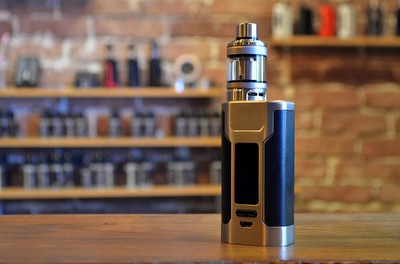
Think vaping is okay because it may be safer than traditional cigarette smoking? Think again.
Both marijuana and nicotine vaping have risen sharply over the past three years among college-age adults in the United States, according to the results of the most recent Monitoring the Future (MTF) study from the National Institute on Drug Abuse (NIDA). Here’s a closer look at the findings, why they’re alarming, and what can be done to reverse the teen vaping trend.
College Students and Vaping
The latest MTF study examines drug use among college students and adults aged 19 to 60 between 1975 and 2019. Key findings include that the percentage of college students reporting past-month marijuana vaping increased from 5.2 percent in 2017 to 14 percent just two years later in 2019. A similar increase was seen among same-age individuals who were not attending college: from 7.8 percent to 17 percent between 2017 and 2019.
An even greater escalation was seen in college-age adults who vape nicotine. While just 6.1 percent of college students said they’d vaped nicotine in the past 30 days in 2017, this number rose to 22 percent in 2019. Nicotine vaping among non-college students between the ages of 19 and 22 increased from 7.9 percent to 18 percent, meanwhile.
While these figures are alarming on their own, they’re especially problematic when you factor in that they represent the most dramatic increases in use for any substances in the MTF’s 45-year history.
The Health Impacts of Vaping
Said NIDA director Nora D. Volkow, M.D., of the phenomenon, “We are seeing an increasingly concerning trend. Many young people may view vaping and cannabis use as ‘safer,’ but the reality is that nicotine is highly addictive, and cannabis can also be addictive, particularly in younger adults for whom the brain is still developing.”
Unfortunately, many teens pick up vaping because they’ve heard it’s less harmful, but that doesn’t mean vaping is safe. According to Johns Hopkins Medicine, not only do e-cigarettes contain many potentially toxic chemicals, they’re also associated with lung injuries and even deaths.
“People need to understand that e-cigarettes are potentially dangerous to your health,” says Michael Joseph Blaha, M.D., M.P.H., “Emerging data suggests links to chronic lung disease and asthma, and associations between dual use of e-cigarettes and smoking with cardiovascular disease. You’re exposing yourself to all kinds of chemicals that we don’t yet understand and that are probably not safe.”
And while marijuana is often viewed as a relatively safe habit, vaping marijuana has also been linked with serious lung diseases.
Furthermore, e-cigarettes are also just as addictive as traditional cigarettes, but uniquely appeal to teens because of the flavorings they contain and the lack of smoke and smell. ““What I find most concerning about the rise of vaping is that people who would’ve never smoked otherwise, especially youth, are taking up the habit,” continues Blaha.
And then there’s the fact that vaping may actually be a gateway to using traditional tobacco products in the future.

More college-aged adults are vaping—and risking dangerous health implications.
Reversing the Teen Vaping Trend
The good news? Measures are already being taken to curtail this crisis. For example, some retailers have stopped selling e-cigarettes, while some states have banned the sale of flavored e-cigarettes. Of course, education is also key: public health officials have highlighted the need for mandatory warning signs and full disclosure by manufacturers regarding cape ingredients and additives.
Technology is also being used in the fight against teen vaping with the introduction of 2Morrow Health, a smartphone app designed to help teens manage cravings in order to kick the habit.
While the statistics may be bleak, understanding the problem is the first step toward solving it. In shining the light on the issue, the MTF study reveals the extent of the problem and the need for a solution. With the subsequent MTF study set to be released in mid-December of 2020, it remains to be seen whether the efforts underway have begun to make a difference.
In addition to paving the way for traditional tobacco use, research published in the New England Journal of Medicine suggests that vaping may also increase the risk of addiction to other drugs, including cocaine. “Our data suggest that effective interventions would not only prevent smoking and its negative health consequences but also decrease the risk of progressing to illicit drug use and addiction,” the research team concluded.
If you or someone you love is already dealing with substance use disorder and/or addiction, rehab can be a critical part of recovery. Harris House has been providing targeted drug and alcohol treatment in the St. Louis area for more than 50 years. Call us today to learn about admissions.







